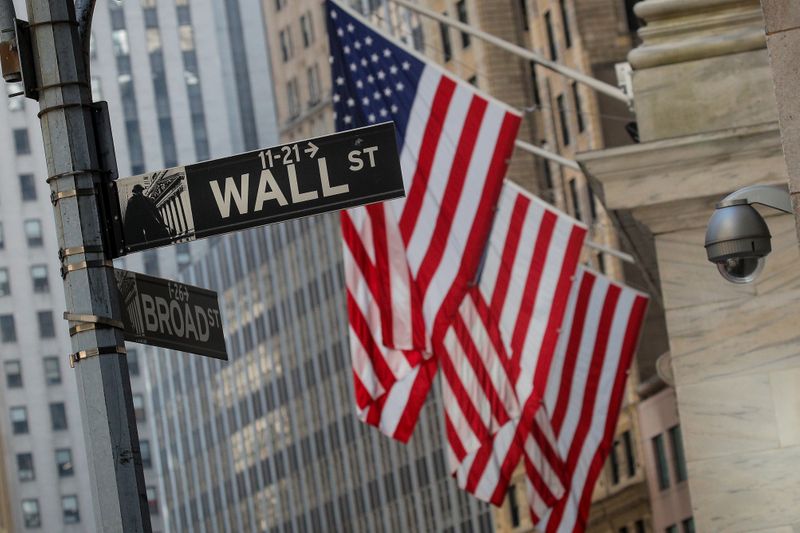By Noreen Burke
Investing.com -- U.S. inflation data on Thursday could bring some insight into when the Federal Reserve might start to slow the pace of rate hikes. The outcome of the U.S. midterm elections on Tuesday, where control of Congress is at stake will also be in focus. China is to release trade and inflation data as Beijing’s zero-COVID policy continues to wreak economic damage. Meanwhile, the U.K. is to release GDP data on Friday which is expected to show the economy has entered a recession. Here’s what you need to know to start your week.
- U.S. inflation data
The U.S. is to release inflation figures for October on Thursday with market watchers on the lookout for indications that price pressures are cooling after a barrage of outsize rate hikes by the Fed.
Fed Chairman Jerome Powell said last week that policymakers will likely take rates higher than envisioned in their attempt to curb soaring inflation, so a hotter-than-expected reading would likely cement expectations for the Fed to continue its hawkish path.
But a cooler-than-expected reading could see markets become more focused on the higher probability of a recession.
Economists are expecting the annual rate of inflation to come in at 8.0% and the monthly rate of inflation to rise by 0.7%.
- U.S. midterm elections
The U.S. is gearing up for midterm elections on Tuesday where control of Congress and President Joe Biden's agenda for the remaining two years of his term are at stake.
Republicans have been leading in polls and many analysts believe the likely result will be a split government, with GOP control of the House of Representatives and possibly the Senate for the second half of Biden's term.
Democrats' electoral hopes have been hammered by voter concerns about high inflation, and Biden's public approval rating has remained below 50% for more than a year, coming in at 40% in a recent Reuters/Ipsos poll.
- Stocks
Wall Street rebounded on Friday to close out a soft week, but the struggling equities rally will be tested in the coming days by the double-whammy of inflation data and U.S. midterms.
Despite Friday’s gains, the Dow fell 1.39% for the week to snap a four-week winning streak, the S&P 500 shed 3.34% for the week and the Nasdaq fell 5.65%, its largest weekly percentage decline since January.
Inflation data has driven huge market moves this year, as persistently high readings forced investors to ramp up expectations for Fed rate hikes.
Analysts said a surprise win by Democrats could fuel concerns about more fiscal spending and the inflation outlook.
According to Reuters data, U.S. stocks have performed better in periods of divided government, with average annual S&P 500 returns of 14% in a split Congress and 13% in a Republican-held Congress under a Democratic president, compared with 10% when Democrats controlled both presidency and Congress.
- China data
Chinese and Hong Kong stocks jumped sharply on Friday amid speculation that Beijing may soon ease its strict zero-COVID curbs, but officials said Saturday that the country was sticking to its policy.
China is to release data on trade, inflation and new loans in the coming week which are expected to point to ongoing weakness in the world’s second largest economy as COVID curbs sap demand.
Beijing is also due to release data on foreign exchange reserves, which are being depleted as authorities seek to shore up the yuan which is on track for its worst year since 1994.
Down for eight months in a row, China's foreign currency reserves are within a whisker of the psychological $3 trillion level amid broad-based dollar strength since the Fed began raising rates in March.
- U.K. GDP
The U.K. is to release preliminary data on third-quarter growth on Friday, which is expected to show that the economy contracted 0.5% in the three months to September.
Last Thursday the Bank of England hiked interest rates sharply as it sought to combat risks from an inflation rate running above 10% and warned of a long recession.
The BoE forecasts inflation will hit a 40-year high of around 11% during the current quarter, but that Britain has already entered a recession that could potentially last two years - longer than during the 2008-09 financial crisis.
--Reuters contributed to this report
